#antiapartheid
Explore tagged Tumblr posts
Link
0 notes
Text
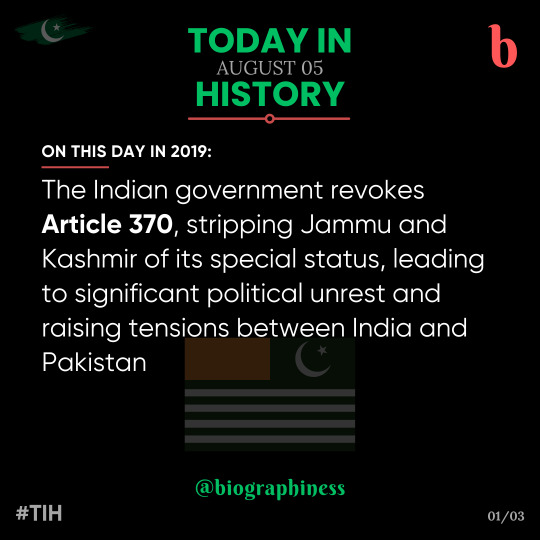
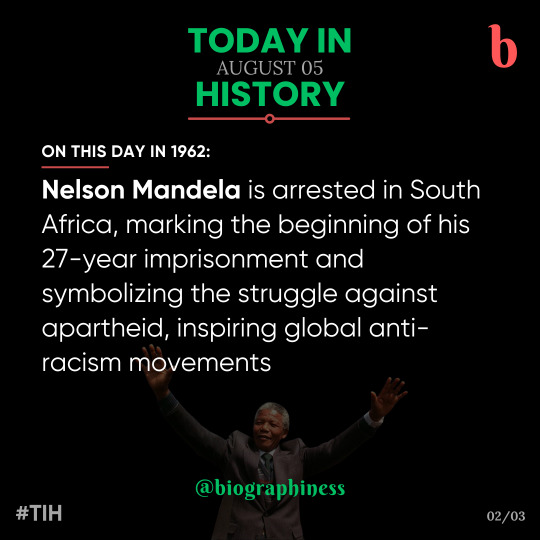
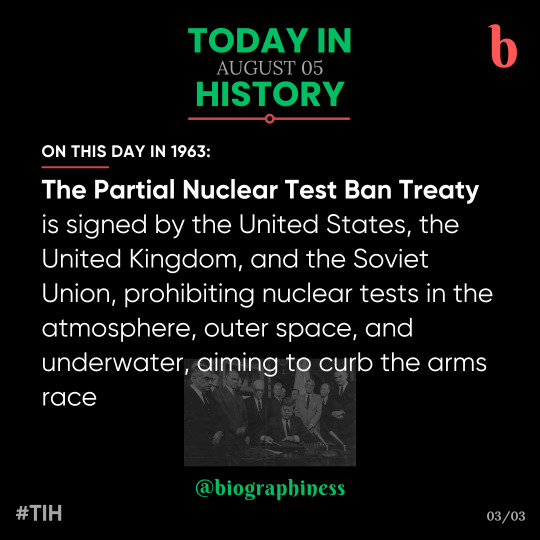
On August 5th India's Article 370 was revoked 🇮🇳⚖️, Nelson Mandela was arrested 🇿🇦✊, and the Partial Nuclear Test Ban Treaty was signed🌐☮️.
#Biographiness#Biograghines#TodayInHistory#TIH#OnThisDay#OTD#HistoryFacts#August5#PakistanHistory#SubcontinentHistory#WorldHistory#Article370#KashmirUnrest#NelsonMandela#AntiApartheid#HumanRights#PartialTestBanTreaty#ArmsControl#ColdWarHistory
1 note
·
View note
Text
Life of Nelson Mandela in Brief
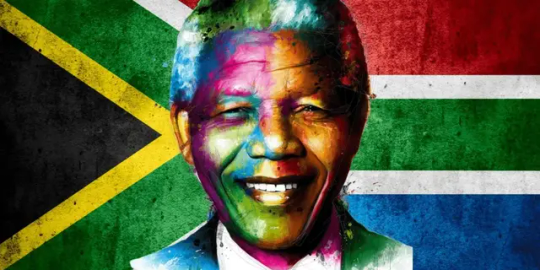
Nelson Mandela succeeded in abolishing apartheid in South Africa through a combination of non-violent protest and negotiations with the government. He campaigned tirelessly for the rights of black South Africans, and his activism led to the dismantling of the system of racial segregation and discrimination. He also spent decades in prison for his anti-apartheid activities, which further raised awareness of the issue and increased pressure on the South African government to end the system. Mandela eventually negotiated a peaceful transition to a multiracial democracy in South Africa, resulting in the end of apartheid and the adoption of a new constitution that protects the rights of all people.
Nelson Mandela succeeded in abolishing apartheid in South Africa by leading a successful nonviolent resistance movement against the South African government, negotiating a peaceful end to the system of racial segregation, and advocating for the adoption of a new democratic constitution that provided equal rights and opportunities for all people in South Africa. He also fought for economic policies that would improve the lives of people in the country and worked to build bridges between the different racial and cultural groups. His legacy continues to inspire people around the world to this day.
Nelson Mandela was a South African anti-apartheid revolutionary, political leader, and philanthropist who served as President of South Africa from 1994 to 1999. He was the country's first black head of state and the first elected in a fully representative democratic election. Mandela was born into the Thembu royal family on July 18, 1918, in Mvezo, South Africa. He was given the name Rolihlahla, which means "troublemaker," by his teacher. Read More...
#NelsonMandela#Mandela#Madiba#SouthAfrica#Apartheid#Freedom#Inspiration#HumanRights#Legacy#Rolihlahla#Leader#Revolutionary#NobelPeacePrize#AntiApartheid#Activist#President#Philanthropist#PeacefulResistance#SocialJustice#Icon#ActivistForChange#metavariation
0 notes
Text
Sep 13 1989 – Largest anti-Apartheid march in South Africa, 30,000 are led by Desmond Tutu in Cape Town. A minutes silence takes place for the victims of Apartheid.
#history#apartheid#antiapartheid#south africa#africa#class war#161#1312#desmond tutu#classwar#capitalism#anti capitalist#capitalist hell#capitalist dystopia#capitalist bullshit#ausgov#politas#auspol#tasgov#taspol#australia#neoliberal capitalism#fuck neoliberals#anthony albanese#albanese government#fuck the gop#fuck the police#fuck the supreme court#fuck the patriarchy#anti capitalism
0 notes
Note
Er what

Not exactly antisemitism but I was running over a blog's search of what they said about apartheid (and its inevitable comparisons with Israel) and a showcase of leftist brainrot
ID:
A screenshot saying: here is probably ONE thing Soviet Russia did right and ARGUABLY BETTER than anyone else in the entire world in the past 100 years of human history: ANIMATION.
Other says:
i would say their funding and material support of antiapartheid groups in south africa is a little more important but this is tumblr so i expect nothing from you people.
https://gardengnosticator.tumblr.com/post/751884453312348160/i-would-say-their-funding-and-material-support-of
I doubt the Soviets' funding of anti-apartheid groups are as noble as those tankies think
Nobody tell OP they were funding those groups to cause a revolution in American Allied country and destabilize the region.
And OOP is objectively correct, any empire can create a puppet state, Soviet animation and film was the same 100 people over and over and they were really good at their jobs.
Soviet Animation had paper dolls and stop motion and hand painted backgrounds and is frankly the one way USSR was actually better than America in literally anything besides sending a bunch of dogs into space. Not even necessarily getting them all safely back either.
(BTW the main engineer who sent Yuri Gagarin into space was a Russian Jew. Gagarin’s second words after his famous first words ever spoken in space “It’s beautiful up here”, was to thank the man. This thank you was censored by the Soviets because they’d rather die than admit a Jewish engineer put the first man in space)
capitalist dog?! Op the Soviet Union would treat you like a dog, the ones they sent into space, so maybe watch some “Hedgehog in the fog” and shut your ignorant Western goy mouth
#Soviet antisemitism#soviet history#space race#tw referenced animal death#Soviet animation#tankie punks fuck off#leftist hypocrisy#leftist brainrot#historical revisionism
26 notes
·
View notes
Text
الإجرام الكبير لجيش الاحتلال"
جرب جثمان شهيد تمت محاصرته في منزل غي قباطيا والتنكيل بالجثة."
“The great crime of the occupation army
Try the body of a martyr who was besieged in the house of Guy Qabatia and the corpse was abused.”
FREE PALESTINE 🇵🇸❤️🇵🇸🖤🇵🇸🤍🇵🇸💚🇵🇸
—————————————————————————
#TreatGazaChildren #GazaCeaseFireNow #OpenRafahCrossing #FeedNorthGaza
#iStandWithPalestine #endisraelgenocide
#ממשלתים_שקרנית #ProtectChildrenInConflict
#freepalestine #EndTheCycleOfViolence #CeasefireForPeace #JusticeForPalestine #فلسطين #IsraeliCrimes #IsraeliApartheid #IsraeliOccupation #IsraelPalestineConflict
#gaza #palestine #savepalestine #westbank #gazaunderattack #savegaza #palestinianlivesmatter
#endgenocide #ethniccleansing
#EndTheOccupation #PalestinianCulture #AntiApartheid #NoToOccupation


#palestinian genocide#gaza strip#free gaza#gaza genocide#palestine#gazaunderattack#war on gaza#save gaza#gaza#stand with gaza#gazaunderfire
21 notes
·
View notes
Text
youtube
On Palestine, G4S, and the Prison-Industrial Complex Speech at SOAS in London
(Angela Davis, December 13, 2013)
Transcript from the book Freedom Is a Constant Struggle
When this event highlighting the importance of boycotting the transnational security corporation G4S was organized, we could not have known that it would coincide with the death and memorialization of Nelson Mandela.
As I reflect on the legacies of struggle we associate with Mandela, I cannot help but recall the struggles that helped to forge the victory of his freedom and thus the arena on which South African apartheid was dismantled. Therefore I remember Ruth First and Joe Slovo, Walter and Albertina Sisulu, Govan Mbeki, Oliver Tambo, Chris Hani, and so many others who are no longer with us. In keeping with Mandela’s insistence of always locating himself within a context of collective struggle, it is fitting to evoke the names of a few of his comrades who played pivotal roles in the elimination of apartheid.
While it is moving to witness the unanimous and continued outpouring of praise for Nelson Mandela, it is important to question the meaning of this sanctification. I know that he himself would have insisted on not being elevated, as a single individual, to a secular sainthood, but rather would have always claimed space for his comrades in the struggle and in this way would have seriously challenged the process of sanctification. He was indeed extraordinary, but as an individual he was especially remarkable because he railed against the individualism that would single him out at the expense of those who were always at his side. His profound individuality resided precisely in his critical refusal to embrace the individualism that is such a central ideological component of neoliberalism.
I therefore want to take the opportunity to thank the countless numbers of people here in the UK, including the many then-exiled members of the ANC and the South African Communist Party, who built a powerful and exemplary antiapartheid movement in this country. Having traveled here on numerous occasions during the 1970s and the 1980s to participate in antiapartheid events, I thank the women and men who were as unwavering in their commitment to freedom as was Nelson Mandela. Participation in such solidarity movements here in the UK was as central to my own political formation as were the movements that saved my life.
As I mourn the passing of Nelson Mandela I offer my deep gratitude to all of those who kept the antiapartheid struggle alive for so many decades, for all the decades that it took to finally rid the world of the racism and repression associated with the system of apartheid. And I evoke the spirit of the South African Constitution and its opposition to racism and anti-Semitism as well as to sexism and homophobia.
This is the context within which I join with you once more to intensify campaigns against another regime of apartheid and in solidarity with the struggles of the Palestinian people. As Nelson Mandela said, “We know too well that our freedom is incomplete without the freedom of the Palestinians.”
Mandela’s political emergence occurred within the context of an internationalism that always urged us to make connections among freedom struggles, between the Black struggle in the southern United States and the African liberation movements—conducted by the ANC in South Africa, the MPLA in Angola, SWAPO in Namibia, FRELIMO in Mozambique, and PAIGC in Guinea Bissau and Cape Verde. These international solidarities were not only among people of African descent but with Asian and Latin American struggles as well, including ongoing solidarity with the Cuban revolution and solidarity with the people struggling against US military aggression in Vietnam.
A half-century later we have inherited the legacies of those solidarities—however well or however badly specific struggles may have concluded—as what produced hope and inspiration and helped to create real conditions to move forward.
We are now confronted with the task of assisting our sisters and brothers in Palestine as they battle against Israeli apartheid today. Their struggles have many similarities with those against South African apartheid, one of the most salient being the ideological condemnation of their freedom efforts under the rubric of terrorism. I understand that there is evidence indicating historical collaboration between the CIA and the South African apartheid government—in fact, it appears that it was a CIA agent who gave SA authorities the location of Nelson Mandela’s whereabouts in 1962, leading directly to his capture and imprisonment.
Moreover, it was not until the year 2008—only five years ago—that Mandela’s name was taken off the terrorist watch list, when George W. Bush signed a bill that finally removed him and other members of the ANC from the list. In other words when Mandela visited the US after his release in 1990, and when he later visited as South Africa’s president, he was still on the terrorist list and the requirement that he be banned from the US had to be expressly waived.
The point I am making is that for a very long time, Mandela and his comrades shared the same status as numerous Palestinian leaders and activists today and that just as the US explicitly collaborated with the SA apartheid government, it continues to support the Israeli occupation of Palestine, currently in the form of over $8.5 million a day in military aid. We need to let the Obama administration know that the world knows how deeply the US is implicated in the occupation.
It is an honor to participate in this meeting, especially as one of the members of the International Political Prisoners Committee calling for the freedom of Palestinian political prisoners, recently formed in Cape Town, and also as a member of the jury of the Russell Tribunal on Palestine. I would like to thank War on Want for sponsoring this meeting and progressive students, faculty, and workers at SOAS, for making it possible for us to be here this evening.
This evening’s gathering specifically focuses on the importance of expanding the BDS movement—the boycott, divestment, and sanctions movement called for by Palestinian civil society—which has been crafted along the lines of the powerful model of the antiapartheid movement with respect to South Africa. While there numerous transnational corporations have been identified as targets of the boycott, Veolia for example, as well as Sodastream, Ahava, Caterpillar, Boeing, Hewlett Packard, and others, we are focusing our attention this evening on G4S.
G4S is especially important because it participates directly and blatantly in the maintenance and reproduction of repressive apparatuses in Palestine—prisons, checkpoints, the apartheid wall, to name only a few examples.
G4S represents the growing insistence on what is called “security” under the neoliberal state and ideologies of security that bolster not only the privatization of security but the privatization of imprisonment, the privatization of warfare, as well as the privatization of health care and education.
G4S is responsible for the repressive treatment of political prisoners inside Israel. Through Addameer, directed by Sahar Francis, we have learned about the terrifying universe of torture and imprisonment which is faced by so many Palestinians but also about their hunger strikes and other forms of resistance.
G4S is the third-largest private corporation in the world—behind Walmart, which is the largest, and Foxconn, the second largest.
On the G4S website, one discovers that the company represents itself as capable of providing protection for a broad range of “people and property,” from rock stars and sports stars to “ensuring that travelers have a safe and pleasant experience in ports and airports around the world to secure detention and escorting of people who are not lawfully entitled to remain in a country.”
“In more ways than you might realize,” the website reads, “G4S is securing your world.” We might add that in more ways that we realize, G4S has insinuated itself into our lives under the guise of security and the security state—from the Palestinian experience of political incarceration and torture to racist technologies of separation and apartheid; from the wall in Israel to prison-like schools in the US and the wall along the US-Mexico border. G4S-Israel has brought sophisticated technologies of control to HaSharon prison, which includes children among its detainees, and Damun prison, which incarcerates women.
Against this backdrop, let us explore the deep involvement of G4S in the global prison-industrial complex. I am not only referring to the fact that the company owns and operates private prisons all over the world, but that it is helping to blur the boundary between schools and jails. In the US schools in poor communities of color are thoroughly entangled with the security state, so much so that sometimes we have a hard time distinguishing between schools and jails. Schools look like jails; schools use the same technologies of detection as jails and they sometimes use the same law enforcement officials. In the US some elementary schools are actually patrolled by armed officers. As a matter of fact, a recent trend among school districts that cannot afford security companies like G4S has been to offer guns and target practice to teachers. I kid you not.
But G4S, whose major proficiencies are related to security, is actually involved in the operation of schools. A website entitled “Great Schools” includes information on Central Pasco Girls Academy in Florida, which is represented as a small alternative public school. If you look at the facilities page of the G4S website you will discover this entry: “Central Pasco Girls Academy serves moderate-risk females, ages 13-18, who have been assessed as needing intensive mental health services.” G4S indicates that they use “gender-responsive services” and that they address sexual abuse and substance abuse, et cetera. While this may sound relatively innocuous, it is actually a striking example of the extent to which security has found its way into the educational system, and thus also of the way education and incarceration have been linked under the sign of capitalist profit. This example also demonstrates that the reach of the prison-industrial complex is far beyond the prison.
This company that provides “security” for numerous agencies as well as rehabilitation services for young girls “at risk” in the United States, while operating private prisons in Europe, Africa, and Australia, also provides equipment and services to Israeli checkpoints in the West Bank along the route of Israel’s apartheid wall as well as to the terminals from which Gaza is kept under continuous siege. G4S also provides goods and services to the Israeli police in the West Bank, while it offers security to private businesses and homes in illegal Israeli settlements in occupied Palestine.
As private prison companies have long recognized, the most profitable sector of the prison-industrial complex is immigrant detention and deportation. In the US, G4S provides transportation for deportees who are being ushered out of the US into Mexico, thus colluding with the increasingly repressive immigration practices inside the US. But it was here in the UK where one of the most egregious acts of repression took place in the course of the transportation of an undocumented person.
When I was in London during the month of October, speaking at Birkbeck School of Law, I spoke to Deborah Coles, codirector of the organization Inquest, about the case of Jimmy Mubenga, who died at the hands of G4S guards in the course of a deportation from the UK to Angola. On a British Airways plane, handcuffed behind his back, Mubenga was forcibly pushed by G4S agents against the seat in front of him in the prohibited “carpet karaoke” hold in order to prevent him from vocalizing his resistance. The use of such a term for a law enforcement hold, albeit illegal, is quite astonishing. It indicates that the person subject to the hold is compelled to “sing into the carpet”—or in the case of Mubenga—into the upholstered seat in front, thus rendering his protests muffled and incomprehensible. As Jimmy Mubenga was held for forty minutes, no one intervened. By the time there was finally an attempt to offer him first aid, he was dead.
This appalling treatment of undocumented immigrants from the UK to the US compels us to make connections with Palestinians who have been transformed into immigrants against their will, indeed into undocumented immigrants on their own ancestral lands. I repeat—on their own land. G4S and similar companies provide the technical means of forcibly transforming Palestinian into immigrants on their own land.
As we know, G4S is involved in the operation of private prisons all over the world. The Congress of South African Trade Unions (CO-SATU) recently spoke out against G4S, which runs the Mangaung Correctional Centre in the Free State. The occasion for their protest was the firing of approximately three hundred members of the police union for staging a strike. According to the COSATU statement:
G4S’s modus operandi is indicative of two of the most worrying aspects of neoliberal capitalism and Israeli apartheid: the ideology of “security” and the increasing privatization of what have been traditionally state run sectors. Security, in this context, does not imply security for everyone, but rather, when one looks at the major clients of G4S Security (banks, governments, corporations etc.) it becomes evident that when G4S says it is “Securing your World,” as the company slogan goes, it is referring to a world of exploitation, repression, occupation and racism.
When I traveled to Palestine two years ago with a delegation of indigenous and women-of-color scholar/activists, it was the first time the members of the delegation had actually visited Palestine. Most of us had been involved for many years in Palestine solidarity work, but we were all thoroughly shocked to discover that the repression associated with Israeli settler colonialism was so evident and so blatant. The Israeli military made no attempt to conceal or even mitigate the character of the violence they inflicted on the Palestinian people.
Gun-carrying military men and women—many extremely young—were everywhere. The wall, the concrete, the razor wire everywhere conveyed the impression that we were in prison. Before Palestinians are even arrested, they are already in prison. One misstep and one can be arrested and hauled off to prison; one can be transferred from an open-air prison to a closed prison.
G4S clearly represents these carceral trajectories that are so obvious in Palestine but that also increasingly characterize the profit-driven moves of transnational corporations associated with the rise of mass incarceration in the US and the world.
On any given day there are almost 2.5 million people in our country’s jails, prisons, and military prisons, as well as in jails in Indian country and immigrant detention centers. It is a daily census, so it doesn’t reflect the numbers of people who go through the system every week or every month or every year. The majority are people of color. The fastest-growing sector consists of women —women of color. Many are queer or trans. As a matter of fact, trans people of color constitute the group most likely to be arrested and imprisoned. Racism provides the fuel for maintenance, reproduction, and expansion of the prison-industrial complex.
And so if we say abolish the prison-industrial complex, as we do, we should also say abolish apartheid, and end the occupation of Palestine!
In the United States when we have described the segregation in occupied Palestine that so clearly mirrors the historical apartheid of racism in the southern United States of America—and especially before Black audiences—the response often is: “Why hasn’t anyone told us about this before? Why hasn’t anyone told us about the segregated highways leading from one settlement to another, about pedestrian segregation regulated by signs in Hebron—not entirely dissimilar from the signs associated with the Jim Crow South. Why hasn’t anyone told us this before?”
Boycott G4S! Support BDS!
Just as we say “never again” with respect to the fascism that produced the Holocaust, we should also say “never again” with respect to apartheid in South Africa, and in the southern US. That means, first and foremost, that we will have to expand and deepen our solidarity with the people of Palestine. People of all genders and sexualities. People inside and outside prison walls, inside and outside the apartheid wall.
Palestine will be free!
Thank you.
26 notes
·
View notes
Text
“Placing the question of violence at the forefront almost inevitably serves to obscure the issues that are at the center of struggles for justice. This occurred in South Africa during the antiapartheid struggle. Interestingly Nelson Mandela—who has been sanctified as the most important peace advocate of our time—was kept on the US terrorist list until 2008. The important issues in the Palestinian struggle for freedom and self-determination are minimized and rendered invisible by those who try to equate Palestinian resistance to Israeli apartheid with terrorism.” ― Angela Y. Davis, Freedom Is a Constant Struggle: Ferguson, Palestine, and the Foundations of a Movement
19 notes
·
View notes
Text
In terms of Palestine, again in the US, how are the narratives similar or different from the antiapartheid days? There are a lot of similarities, precisely because BDS has chosen to follow the root of the antiapartheid struggle toward a hopefully more global sense of solidarity by using the method of mass boycott. I guess what is different is the existence of a powerful Zionist lobby. Certainly there was a powerful apartheid lobby, but it did not have nearly the influence as the Zionist lobby, which can be seen in terms of Black religion; its tentacles reach into the Black church, there have been direct efforts to, on the part of the state of Israel, to recruit significant Black figures. And I don’t know whether we experienced that level of sophistication during the antiapartheid era. Certainly the Israeli state has learned from that movement. But at the same time I think that we’ve never seen on a grassroots level the kind of affinity with the struggle in Palestine as we are witnessing today among activist groups. And my experience has been whereas once one would have expected perhaps restrained enthusiasm for the Palestinian struggle, now one can expect that audiences everywhere embrace this struggle. [...] Recently I had the opportunity to participate on a panel of the National Women’s Studies Association (NWSA) conference, and the NWSA has never taken a position on Palestine due to Zionist influences, I would say. In a large plenary gathering with perhaps twenty-five hundred people, during a panel on Palestine, someone asked whether we could take a floor vote, whether people there wanted the NWSA to take a strong position in support of BDS, and virtually everyone in the audience stood up. This was so unprecedented. There may have been ten or twenty people sitting down, but the sustained applause, it was actually a very exciting to experience. These changes are crucial to bring about a bigger one.
Angela Davis from "We Have to Talk about Systemic Change" in Freedom Is a Constant Struggle: Ferguson, Palestine, and the Foundations of a Movement (2016)
3 notes
·
View notes
Text
Throwback Thursday: Eddy Grant - Gimme Hope Jo'Anna
#ThrowbackThursday: @Eddy_Grant - Gimme Hope Jo'Anna The famous activist #reggae singer/songwriter's hopeful, anti-apartheid hit feels prescient in our current times #EddyGrant #antiapartheid #political #unity #ElectricAvenue #throwback #hope
(Photo by Gary Gershoff/Getty Images) While doing one of my semi-annual checks to see if famous British reggae artist Eddy Grant had possibly changed his mind about including his huge hit “Electric Avenue” on streaming services (note: he has not), I did find that there were a few select hits by the artist on Spotify as part of reggae compilations. While this may be to the artist’s chagrin (he…

View On WordPress
1 note
·
View note
Text
Trump se compara con Mandela tras registrarse para primarias
Nueva Hampshire. El ex presidente Donald Trump se comparó el lunes con el activista antiapartheid Nelson Mandela, al describirse como la víctima de fiscales federales y estatales que, asegura, están en contra suya y de sus negocios por motivos políticos. Continue reading Untitled

View On WordPress
0 notes
Photo

UMkhonto we Sizwe 🇿🇦 Founded: 12.26.2021🌹 #ANC #AntiApartheid #GuerrillaWarfare #Decolonize #Decolonization #AfricanResistence #AfricanWorldOrder (at South Africa) https://www.instagram.com/p/CXhohXQrQ98/?utm_medium=tumblr
40 notes
·
View notes
Text
FREE PALESTINE 🇵🇸❤️🇵🇸🖤🇵🇸🤍🇵🇸💚🇵🇸
—————————————————————————
#TreatGazaChildren #GazaCeaseFireNow #OpenRafahCrossing #FeedNorthGaza
#iStandWithPalestine #endisraelgenocide
#ממשלתים_שקרנית #ProtectChildrenInConflict
#freepalestine #EndTheCycleOfViolence #CeasefireForPeace #JusticeForPalestine #فلسطين #IsraeliCrimes #IsraeliApartheid #IsraeliOccupation #IsraelPalestineConflict
#gaza #palestine #savepalestine #westbank #gazaunderattack #savegaza #palestinianlivesmatter
#endgenocide #ethniccleansing
#EndTheOccupation #PalestinianCulture #AntiApartheid #NoToOccupation

32 notes
·
View notes
Photo

#sunday Rest in power Archbishop Desmond Mpilo Tutu! ¡Tutu presente! I am heartbroken 💔 I’ve had many teachers in my life but none so profoundly committed to justice and joy as “the arch”. Working with a US based organization he advised, it was a privilege to sit, listen and learn from him and to help organize book events when he visited Los Angeles. It was through this work that I experienced his humor and silliness (hoped for a comedy tour w him and the 14th Dalai Lama), his beautiful, contagious laugh and when I first visited All Saints Church in Pasadena where Tutu would often give sermon—a place where many people I love attend-that is no coincidence. His stories and strategies are etched deeply in me and my work, and I am forever grateful. 🙏🏾 “Forgiving and being reconciled to our enemies or our loved ones are not about pretending that things are other than they are. It is not about patting one another on the back and turning a blind eye to the wrong. True reconciliation exposes the awfulness, the abuse, the hurt, the truth. It could even sometimes make things worse. It is a risky undertaking but in the end it is worthwhile, because in the end only an honest confrontation with reality can bring real healing. Superficial reconciliation can bring only superficial healing.”- @desmondtutu #sundaymotivation #sundayservice #sundays #archbishopdesmondtutu #archbishopmpilotutu #thearch #tutu #southafrica #southafrican #antiapartheid #justice #truthandreconciliation #free #freedom (at Los Angeles, California) https://www.instagram.com/p/CX85t3WlXw-/?utm_medium=tumblr
#sunday#sundaymotivation#sundayservice#sundays#archbishopdesmondtutu#archbishopmpilotutu#thearch#tutu#southafrica#southafrican#antiapartheid#justice#truthandreconciliation#free#freedom
2 notes
·
View notes
Text
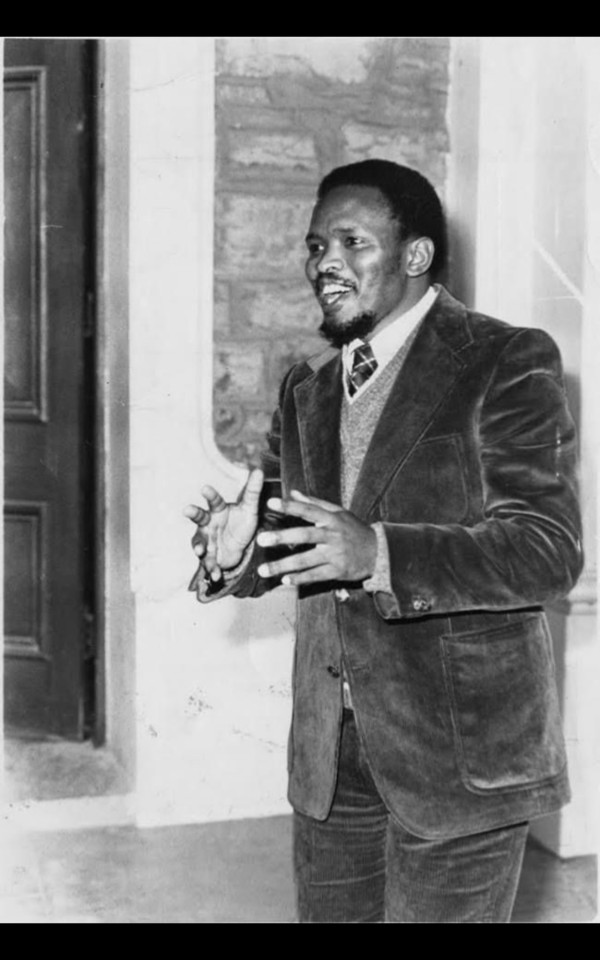
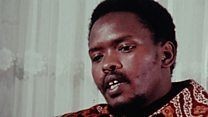
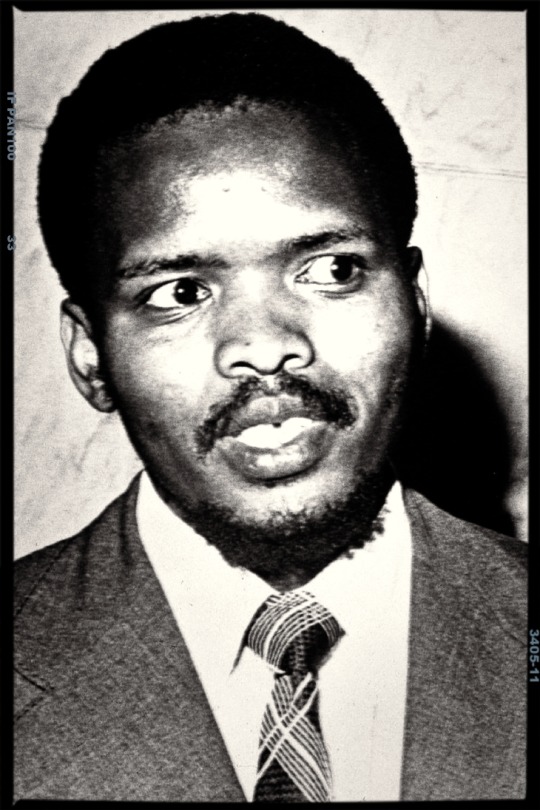
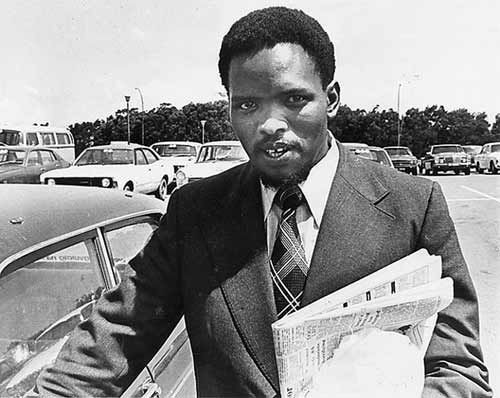
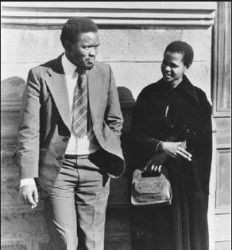
"At the heart of black consciousness is the realisation by blacks that the most potent weapon in the hands of the oppressor is the mind of the oppressed."
Steve Bantu Biko, I Write What I Like, 1978.
45 notes
·
View notes
Text
"الجنود يستخدمون الرماح والأسهم المشتعلة لاحداث حرائق في جنوب لبنان."
“Soldiers use spears and flaming arrows to start fires in southern Lebanon.”
FREE PALESTINE 🇵🇸❤️🇵🇸🖤🇵🇸🤍🇵🇸💚🇵🇸
—————————————————————————
#TreatGazaChildren #GazaCeaseFireNow #OpenRafahCrossing #FeedNorthGaza
#iStandWithPalestine #endisraelgenocide
#ממשלתים_שקרנית #ProtectChildrenInConflict
#freepalestine #EndTheCycleOfViolence #CeasefireForPeace #JusticeForPalestine #فلسطين #IsraeliCrimes #IsraeliApartheid #IsraeliOccupation #IsraelPalestineConflict
#gaza #palestine #savepalestine #westbank #gazaunderattack #savegaza #palestinianlivesmatter
#endgenocide #ethniccleansing
#EndTheOccupation #PalestinianCulture #AntiApartheid #NoToOccupation


#lebanon#israel is a terrorist state#israel lies#zionistterror#zionazis#anti zionisim#zionsim is terrorism#zionistcensorship
0 notes